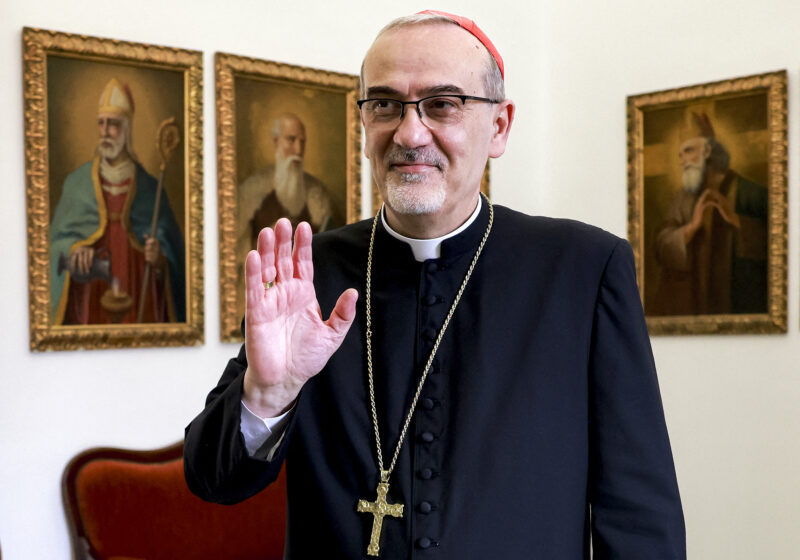Led by co-partners Lee Jacobs and Arielle Zuckerberg — sister of Mark Zuckerberg — Long Journey Ventures said Oct. 7 created a ‘new litmus test’ for investing in Silicon Valley

Courtesy
Cyan Bannister, Lee Jacobs, and Arielle Zuckerberg
If you are not Jewish, receiving a gift of $18 or $72 or even $360 might raise eyebrows — as Jerry Seinfeld would say, what’s the deal with all those seemingly random numbers? But a Jewish bride and groom or a bar mitzvah boy receiving checks from loved ones would know that these numbers are all increments of 18, the number representing the Hebrew word for life, chai.
So when Long Journey Ventures, a venture capital firm in San Francisco, announced that it had raised a new fund totaling $181,818,181.80, that figure may have confused some fellow tech investors — but since the firm’s guiding ethos is investing in the “magically weird,” it may have seemed like just another oddity from a VC that has proven itself a serious early stage investor in the competitive world of Silicon Valley.
The number was not just a … well, weird, coincidence. Long Journey founder and managing partner Lee Jacobs published a blog post last month outlining his thinking behind the number. “The horrific attacks in Israel on October 7th awakened something dormant at my core — a deep inner knowing of my purpose and what I’m willing to fight for,” wrote Jacobs. “This fund, with its repetition of 18s, embodies my commitment to supporting life and creation.”
In an interview with Jewish Insider, Jacobs and co-managing partner Arielle Zuckerberg described how the Oct. 7 Hamas terror attacks in Israel fundamentally altered both their worldview and their approach to investing.
“We’ve always thought about who we’re partnering with in these long-term relationships. But Oct. 7 created a new litmus test for that,” said Jacobs, formerly a partner at the VC AngelList. “Sharing our values is a very important piece of the puzzle.”
The organizations and individuals that invest in a VC fund are developing a relationship with the fund’s managers that will continue for several years. When raising money for their latest fund, Jacobs, Zuckerberg and Cyan Bannister, the third co-managing partner (who, unlike Jacobs and Zuckerberg, is not Jewish), made a choice not to partner with universities that the trio did not believe had appropriately responded to antisemitism on campus. The group brought up the issue when they met with the managers of university endowments, and there were some universities who were turned down as limited partners (LPs) because the Long Journey team did not see them as taking the issue seriously — though Jacobs did not name those schools.
“A number of [universities] took it very seriously, to the point where it was very clear that it was not only the endowment office, but other people that were weighing in on how they thought about this and what they were saying,” said Jacobs. “It presented an opportunity for us to really deeply understand the value system of the people that were running the organization.”
The $181 million fund is Long Journey’s fourth, which Jacobs and Zuckerberg view as a coming-of-age moment — like a bar mitzvah, they say, leaning into the chai theme — showing they’ve proven their staying power in the cutthroat VC world. Their previous funds did not lean heavily into values. Long Journey now has more leeway to do so, because the new fund was oversubscribed.
“Oct. 7 was a real clarifying moment, and it brought more intentionality to that process than I think we previously had,” said Zuckerberg, who is the sister of Meta CEO Mark Zuckerberg. “We want our LPs to be tied to causes that we care about, because those are the people we’re making money for at the end of the day.”
Long Journey is looking to invest in companies whose founders and products are “magically weird,” rather than focusing on a particular industry. Zuckerberg has said she and her team talk about whether founders have the right combination of “‘rizz and ‘tiz,” using slang for “charisma” and “autism.”
“We believe that neurodivergence is a superpower, and we look for people that live their lives differently,” Zuckerberg said in a recent podcast interview. Long Journey’s partners have been early investors in Uber, Postmates, defense technology company Anduril and SpaceX. Among their current interests are robotics companies, biotech and even software companies “run by crazy people, by really passionate, bold founders.”
While Oct. 7 may have shaped the way Jacobs and Zuckerberg think about the world, it has not affected the companies in which they plan to invest. They made clear they are not a social impact fund.
Still, even publicly taking a stance with their investors was a shift for them — and Zuckerberg and Jacobs weren’t sure how colleagues in Silicon Valley would react to their distinctly Jewish-themed fund.
Zuckerberg described herself as feeling “politically homeless” after Oct. 7, and has since been “creeping right over time.”
“I kind of rethought everything,” she acknowledged. But in Silicon Valley, the pair found the elite world of venture capital and tech startups to be on their side.
“A lot of people reached out to me thanking us for our boldness and recognizing the courage in what we did, in taking a stand,” said Jacobs.
Zuckerberg’s assessment was much more blunt: “Oct. 7 was a real moment in Silicon Valley where people were like, ‘This woke bullshit has gone too far,’” she said. “What I saw is mostly people on the side of Jews.”





























































